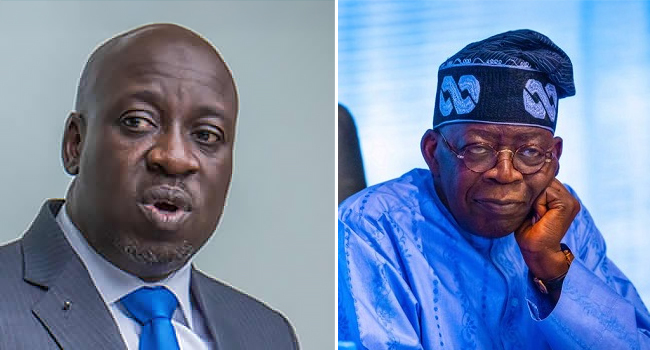The African Democratic Congress (ADC) has issued a strong warning to President Bola Tinubu, accusing him of constitutional overreach and authoritarian tendencies in his handling of the political crisis in Rivers State.
In a statement on Thursday by its National Publicity Secretary, Bola Abdullahi, the ADC criticised Tinubu for what it described as an “unconstitutional suspension” of Governor Siminalayi Fubara, his deputy Ngozi Odu, and members of the Rivers State House of Assembly — and their subsequent reinstatement by presidential proclamation.
“This President’s decision to arrogate to himself the power to suspend and recall elected officials in Rivers State, as he had done, is whimsically autocratic and should be recognised and condemned as a threat to our democracy,” the party said.
President Tinubu had, on Wednesday, formally announced the end of a six-month emergency rule imposed on Rivers State on 18 March 2025, citing security and political instability. He directed the governor, his deputy, and state lawmakers to resume duties on 18 September.
The ADC described the move as an “assault on democracy,” insisting that only a competent court has the authority to remove or reinstate elected officials, not the President.
“Governors and legislators in a democracy do not draw their legitimacy from Aso Rock. They derive it from the people who elected them,” the statement continued. “The President is not a headmaster, and governors are not his pupils to be sent home and recalled at his discretion.”
The party also accused Tinubu of betraying the federalist ideals he once championed as governor of Lagos State, adding that his actions in Rivers State serve as a warning to other state governments to align with federal authority or face similar treatment.
“Now they have a thoroughly pacified government in Rivers State,” the ADC said. “This wasn’t about restoring peace — it was about control. It sends a chilling message to every other governor in the country.”
The party questioned the motives behind Tinubu’s return from vacation, saying it was not to address worsening national security but “to personally oversee Fubara’s return to office and bask in the glory of dictatorial powers.”
Calling for judicial intervention, the ADC urged the Supreme Court to take a firm position on the matter, warning that silence would make the judiciary complicit in undermining democracy.
“For avoidance of doubt, Section 305 of our Constitution, which provides for emergency powers, was never intended to be used to settle political scores,” the statement added. “This is a dangerous precedent, and the courts must speak up before it becomes the norm.”
The ADC concluded by warning that Nigeria’s democratic institutions risk being weakened unless the separation of powers is respected and upheld.



